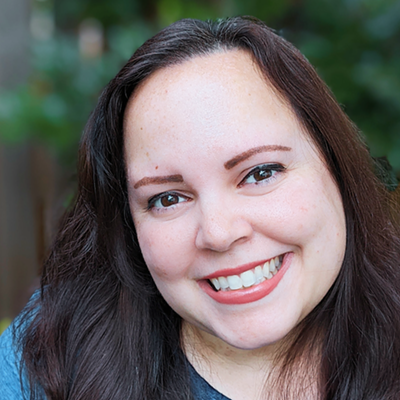Tokyo Police Club is far from the first Canadian band to market music to the U.S. masses and be blessed with a cult following before hitting its prime. Somehow between the full-lengths, EPs, and relative fame, the Ontario quartet has solidified its sound and audience.
Even if the guys aren't specifically courting college-radio kids — and they dropped out of college in their early 20s to pursue careers in music — this sugar-charged brand of indie rock is suitable for transitioning from the dorm room to the bar. Tokyo Police Club's fast-paced, angular rhythms are distinctive, and with lyrics like "Good to be back/Super fun/At the movies, drunk and young," it's easy to see why high schoolers, college kids, and 20-somethings alike can relate. With a nod to both Death Cab for Cutie and the Strokes, the band's breeziness and carefree spirit mirrors a day out at the beach.
Now working on the follow-up to sophomore album Champ, Tokyo Police Club remains just as fresh-faced as the music. But this time around, the trademark plucky cheer is getting more mature. Expect some new material at the group's Culture Room show Friday, which is the first headlining slot of this tour.
"We're starting to get a little more playful on stage, even within those songs, and trying to come up with new ways to keep it kind of fresh for ourselves," drummer Greg Alsop tells New Times. "Hopefully we'll give you some older tracks that we'll rework a little bit."
Other bands have done some reworking of Tokyo Police Club's material too. Remixers include Passion Pit, Los Campesinos!, and even the Smiths' very own Andy Rourke — a complete surprise. The band first heard bassist Rourke's remix of "Breakneck Speed" while hanging out in a bar in New York, and they had no idea what was going on, but it was the biggest deal for a longtime musical hero to be revamping one of their songs. "That's like just kind of one of those where you kind of have to check yourself surprises, when something like that happens," Alsop says. "Whenever something like that happens, it's always very surreal."
Remixes go only so far for this group, though. While many indie stars like Sufjan Stevens constantly experiment with new genre identities, Tokyo Police Club has managed to stick to its guns and innovate without losing ties to past material.
"We never would have written a song like 'Breakneck Speed,' 'Favourite Colour,' 'Frankenstein,' or 'Gone' before [Champ]," Alsop admits. "We would've tried to somehow fit them into that fast-paced rock that we were kind of known for in our first releases. I think that just comes with trying to change with the band and also growing a little bit older as well. It's draining to play songs that are like 200 beats per minute for like an hour long. It's tiring for an audience as well. So it's best that we keep trying to have those different dynamics in our show at this point."
Tokyo Police Club's formation in 2005 was far less plotted out, however. Initially just for fun in a basement, the guys had played only a few small shows throughout the Toronto area before getting asked to perform in the Pop Montreal Festival, getting signed to a local record label, and later making the decision to become professional musicians.
"It felt like it could've been like the dumbest decision of my life," Alsop says. "But luckily, it didn't turn out that way. It's kind of proven to us that it still was like a dumb decision — but it was a dumb decision that worked out, thankfully."
Smarter decisions have followed in the form of high-exposure festival dates, among them Coachella, Lollapalooza, Glastonbury, and Reading and Leeds. Pair extensive touring with two EPs and two full-lengths recorded during the past five years and it has been a steady clip. "I'm glad that it is that busy," says Alsop. "It makes it easier to have to explain to your parents and grandparents that you won't be home for the holidays. Like, 'We're actually working. Stuff's happening.' I don't need to go back to school or try and get a job at Starbucks or something. This is... this is real."
Alsop, a 24-year-old Ontario native, plays an integral role in the band and isn't just the guy sitting shyly behind the kit at shows. He contributes to the songwriting process — all of the band's members do — and each idea gets translated into beats.
"Not Sick" and "Nursery, Academy" are among the tracks that began with Alsop having a drum idea and the band just building a song around it. As for songs like "Bambi," it began with more of a loop and a hidden drum pattern for Alsop to play around with within the context of their idea.
"I think we're getting to a point where just whoever has a good idea will explore it," he continues. "We're really great at recognizing the strengths in each other's ideas and how we can contribute to them."
Another new idea: Tokyo Police Club: The Magazine, which is limited to 200 copies for sale during this tour. The band-compiled publication gives outsiders a look at some of the individual members' personal roles and highlights of the touring experience. There are interviews, photographs taken by the band, poetry, an advice column titled "Ask Greggers," and a download of Champ.
Alsop thinks that the magazine will be something to value years down the line as a memento of the road introducing them to new places and new people. "It's almost like scrapbooking in a way," he says. "It's kind of cool to build that community with your fans, the same way we were such big fans of bands when we were younger, like Radiohead and the Strokes. Every time that they would release something new, we would all geek out over that."











